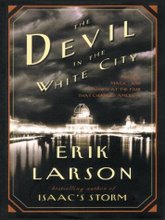For Christmas, one of my Aunt’s (knowing what a reading-nut and rhetoric-nut I am) gave me the book The Eloquent President: A Portrait of Lincoln Through His Words by Ronald White.
In the book, the author (who also wrote a tome entitled Lincoln's Greatest Speech: The Second Inaugural which examined the second Inaugural) looks at the progression of Lincoln's thoughts and the growing prominence and articulacy of his speeches during his presidency by examining 11 of Lincoln’s speeches individually while also looking at their relationship to one another and how they all tie-in or, in the author’s words, how they are like a “string of pearls” that come together to make something incredible.
The author traces Lincoln's ever-evolving rhetoric over the course of his presidency in what can best be described as a series of critical essays.
(It should also be known that White puts an emphasis on how much presidential power can emanate from “rhetorical leadership”, something I wrote a lengthy essay on, from a Platoism perspective, when I was an undergrad)
In many of the speeches, White shows that Lincoln always left the audience with thoughts and ideas (which any good speech professor – such as me – will tell you is one of the goals of speechmaking) that will be picked up on in a later speech and which have developed more fully over time as Lincoln’s thoughts on those particular subjects have grown.
Now, enjoy an excerpt:
Lincoln’s farewell address at Springfield, IL. February 11, 1861
“My friends.
No one, not in my situation, can appreciate my feeling of sadness at this parting. To this place, and the kindness of these people, I owe every thing. Here I have been a quarter of a century, and have passed from a young to an old man. Here my children have been born, and one is buried. I now leave, not knowing when, or whether ever, I may return, with a task before me greater than that which rested upon Washington. Without the assistance of that Divine Being, who ever attended him, I cannot succeed. With that assistance I cannot fail. Trusting in Him, who can go with me, and remain with you and be every where for good, let us confidently hope that all will yet be well. To His care commending you, as I hope in your prayers you will commend me, I bid you an affectionate farewell.”
Abraham Lincoln arrived at the small brick Great Western Railway station in Springfield on February 11, 1861, prepared to travel to Washington and his inauguration as the sixteenth president of the United States. The day dawned cold and miserable, with intermittent rain dripping from the low-hanging clouds. Parked at the station was the Presidential Special, a train consisting of only two cars, an ordinary passenger coach and a baggage car, standing by to receive the president and his party. Both cars were painted a bright yellow. The grand locomotive-the L. M. Wiley, brasswork gleaming, with its huge balloon stack-hissed at the ready.
Lincoln had decided beforehand that he would offer no remarks, and the press had been so informed. After the many farewells of recent days, Lincoln believed there was no need for any more words. Newspaperman Henry Villard, a twenty-five-year-old German immigrant posted to Springfield in November by the New York Herald to report on Lincoln's daily activities after his election as president, captured a remarkable scene. "The President elect took his station in the waiting-room, and allowed his friends to pass by him and take his hand for the last time."
Villard observed that Lincoln's "face was pale, and quivered with emotion so deep as to render him almost unable to utter a single word."
On the Kemp scale of 1 being a piece of crap and 10 being TKAMockingbird-esque, I give this book a seven.













1 comment:
The Kemp scale! I love it!
Post a Comment